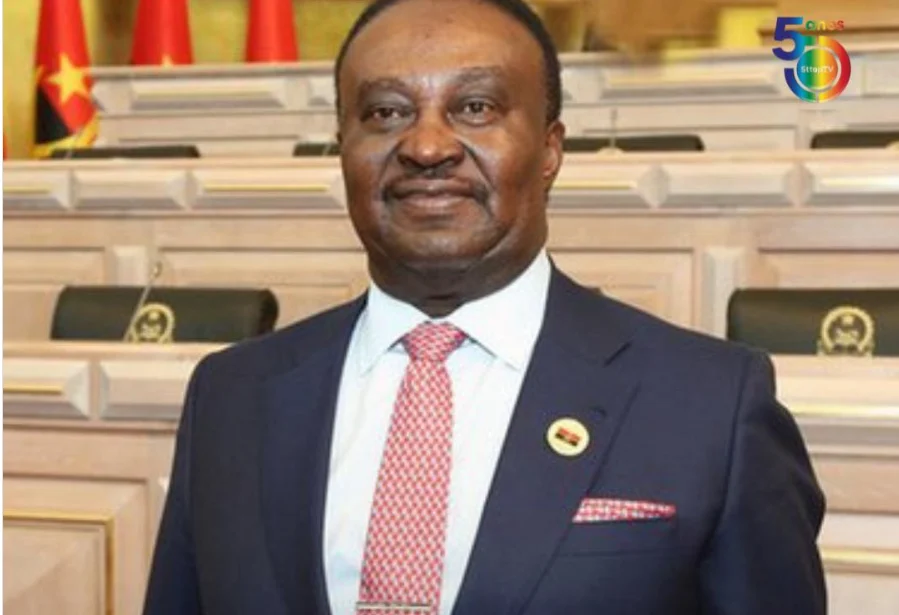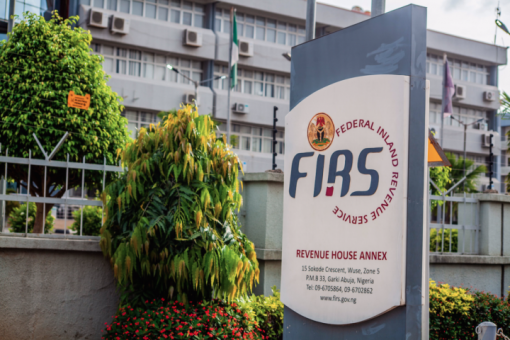
President Muhammadu’Buhari’s international allure at the moment seems potent enough to charm even an Indian goddess.
I watched him yesterday thanking the god of technology and the government of the United States for Nigeria’s successful election and inter-party transition while addressing members of President Obama’s cabinet.
If Ghana’s Kwame Nkrumah were to be alive today, he would have annoyingly tagged President Muhammadu Buhari as a reincarnation of Sir Abubakar Tafawa Balewa. Nkrumah, being the foremost champion of Pan-Africanism was avowedly critical of what he described as the neocolonialist tendencies of the West in matters of supposedly independent African nations. Nigeria on the other hand was a younger and vibrant nation under the saddle of a Fulani teacher much loved by the British for his seeming loyalty to their cause. At the height of the friction between Balewa and the Awolowo led opposition, Kwame Nkrumah incited the Ghanaian press to label Balewa as a black European for his seeming willingness to always be in the good books of the British.
In an amazingly similar trajectory, President Buhari has never acted like someone with the savoire-faire of a heroic leader and neither does he have the je ne sais quoi of some of the world’s most charismatic orators. One thing he however has in his favour is providence.
President Muhammadu Buhari did not only rise on the altar of the most keenly contested election in the nation’s political history but arguably one of Africa’s most divisive and mud-ridden campaigns of all time.
The complexity of the Nigerian state is one that made several pundits believe that the transition of government from one political party to another in the world’s largest black race can only be best imagined as a pipe dream. It is not as though the sit-tight syndrome is peculiar to her alone but considering the nation’s stormy political antecedents cum fragile conglomeration of over 250 ethnic states, the import of the herculean trail can be best appreciated.
Emilo Kibaki of Kenya saw fortune smiling on his path having unsuccessfully vied for Kenya’s most coveted seat on two occasions before emerging victorious in his third trial.
In corollary, Abdoulaye Wade of Senegal also thought his jinx was insurmountable until he became lucky in his fifth attempt in 2000.
None of these countries however had the multiplicity of political imbalances cum regional conflagration which Nigeria had in the heat preceding the 2015 election. So when Muhammadu Buhari eventually emerged as the winner of a presidential election deeply etched along ethnic lines, it did not really come as a surprise when the encomiums were being poured from several quarters.
I wrote an essay last month on President’s Buhari’s invitation to the G-7 summit, describing it as a welcome fillip and a deviation from the norm with regards to the nation’s frosty diplomatic foreign policy under his predecessor. That nevertheless still poses a threat considering the business interests of other power blocs whom Nigeria shares close ties with.
The Daura-born former dictator is however yet to get his administration in full swing but seem to have the odds in his favour already. The conservative Buhari whom we all know is the last person who would ever renege on the same sex prohibition Act which was signed into law by his predecessor.
Not even for all the gold in Fort Knox would he be cajoled to compromise his stance. There are neither signs that Nigeria would severe its age-long business ties with China or other emerging nations in the G-20 for the purpose of protecting the interest of the almighty U.S.A.
So for the umpteenth time, it is critical to ask once more what are the permutation of factors that makes Buhari appeal as an honourable gentleman before world powers even in the light of the country’s waning oil fortunes.
Regional Matters
This has always been an area where the United States and European Union are known for their ‘holier than thou’ attitude. From the apartheid days in South-Africa to the Falkland tussle and the preoccupation of Crimea by Russia, these world powers are known to always consider their stance as the most sanitized definition of propriety in a world fraught with greed and selfish interests.
A typical example when the United States gladly ate its cake and had it again on issues concerning Nigeria was with that of former Liberian president; Charles Taylor. Sequel to an agreement reached by the African Union in the bid to restore peace to war-torn Liberia, Taylor was to be given a safe-haven in Nigeria while he was also expected to stay away from Liberian politics.
The regional councils in the continent all agreed to this deal not until the Interpol, courtesy of a bill passed by the United States Congress, issued a red alert suggesting that all countries had a duty to arrest him. Nigeria had no other option than to renege on its promise when Liberia submitted an official request to Nigeria for his extradition.
Such, is the height of how overbearing the United States could be especially on issues where its stakes are involved.
The unsanctioned invasion of Iraq by the U.S.A under the administration of George Bush was tantamount to being guilty of war crimes but in a world of irony, no one dare prosecute the wife of Caesar even if she fails to be above suspicion.
It is on record that late General Murtala Mohammed’s Africa-centered foreign policy greatly irked the Western blocs such that a number of foreign intelligence agencies are said to have been privy to his assassination. The United States had its way on the Charles Taylor issue not because Nigeria had a timid or weak character in President Olusegun Obasanjo but because the then President of Liberia; Helen Johnson Sirleaf, had been bought over by the poisoned chalice which America always doled out to African puppets like cheap confetti.
In this time when Nigeria wallows in dire need of a bail out from her dwindling oil fortunes, would President Buhari subject the country to the whims and caprices of the U.S.A and other Western powers? Would the United Kingdom in the long run, be so glad to have found another honourable gentleman in President Muhammadu Buhari like it found in Sir Abubakar Tafawa Balewa during the first republic? As the famous response goes; time will tell!
Military Assistance
In a trip flushed by so much zest for financial assistance and economic cooperation, a 30-man delegation joined the President’s entourage to the U.S.A. Going by the cliff-diving intensity of the new found camaraderie between Nigeria and the West, it is imperative the former takes great heed as the modus operandi of neocolonialism could be very subtle and varied.
Nigeria is no alien to this slippery lust but at the moment, is as economically desperate as several European nations were after the Second World War and the United States, being the father of neo-colonialism would through its methodical thoroughness offer the much needed aid and then spread its neo-colonial tentacles to those who subconsciously sought for its company. Afterall, he who plays the piper dictates the tune.
The inventiveness of neo-colonialism has been well documented over the years but has still proven inexhaustible. Nigeria needs the military assistance of the U.S.A like a deer panting for the flow from a brook.
As inviting as that seems, does the U.S.A really offers its military assistance without seeking for a steep price in exchange? The nefarious ends of Western intelligence set-ups were evidently brought to the fore during the April 1961 plot of anti-de Gaulle generals in conjunction with the French Prime Minister, the famous U-2 spy intrusion of Soviet air space during the cold war which wrecked the approaching Summit between the Soviet and other Western powers, the futile witch-hunting of Iraq as an axis of evil by George Bush which led to the military preoccupation of Iraq despite not getting the UN Security Council Resolution and several others too detailed to catalogue completely.
In the event of America’s military assistance for the purpose of curtailing the boko haram menace in the North-East, would Nigeria also not be providing the leeway for America to use the region as a base for fighting any other neighbouring region it deems as an axis of evil? Would the North-East of Nigeria really escape from the jugular of terror attacks should America gain its foothold there?
Economic Cooperation
As noted earlier in this essay, President Muhammadu Buhari’s overwhelming goodwill before the West does not look like one that would remain without a steep price. Despite being beset by enormous security challenges and infrastructural burden, Nigeria’s status as Africa’s largest economy is one bound to send shivers down the spine of any foreign nation willing to enjoy a smooth penetration into Africa’s emerging market.
The United States is well aware of this fact and is much wary of the stiff competition it stands to face in the light of China’s ascendancy in the technological spectrum coupled with Russia’s tendency to enter into diplomatic fraternity with countries that are at dissonance with the U.S.A on political issues. The United States perfectly appreciates the import of being in consonance with Nigeria’s new administration and is willing to cast a blind eye to President Buhari’s current unwillingness to compromise his stance on the same sex marriage.
On the economic turf, Nigeria hopes to consolidate her economic fortunes with her renewed bilateral relations with the U.S.A. How that intends to be achieved remains confounding going by America’s new status as a net exporter of oil.
The overwhelming dominance of the world market by the West has always put manufactured goods on the ascendancy at the detriment of African countries who are majorly exporters of raw materials. This coupled with the economic burden usually put on erring countries who seek multilateral aids through international organisations exposes a tempting neo-colonialist trap which Nigeria is willing to plunge into.
With the Government Debt to GDP of 10.50 percent of the country's Gross Domestic Product in 2014, Nigeria seems to be in good stead as it relates to the country borrowing cost and government bond yield. It thus becomes the prerogative of the Buhari-led administration to either make do with the known devil or cautiously dine with the same devil using a long fork.






















